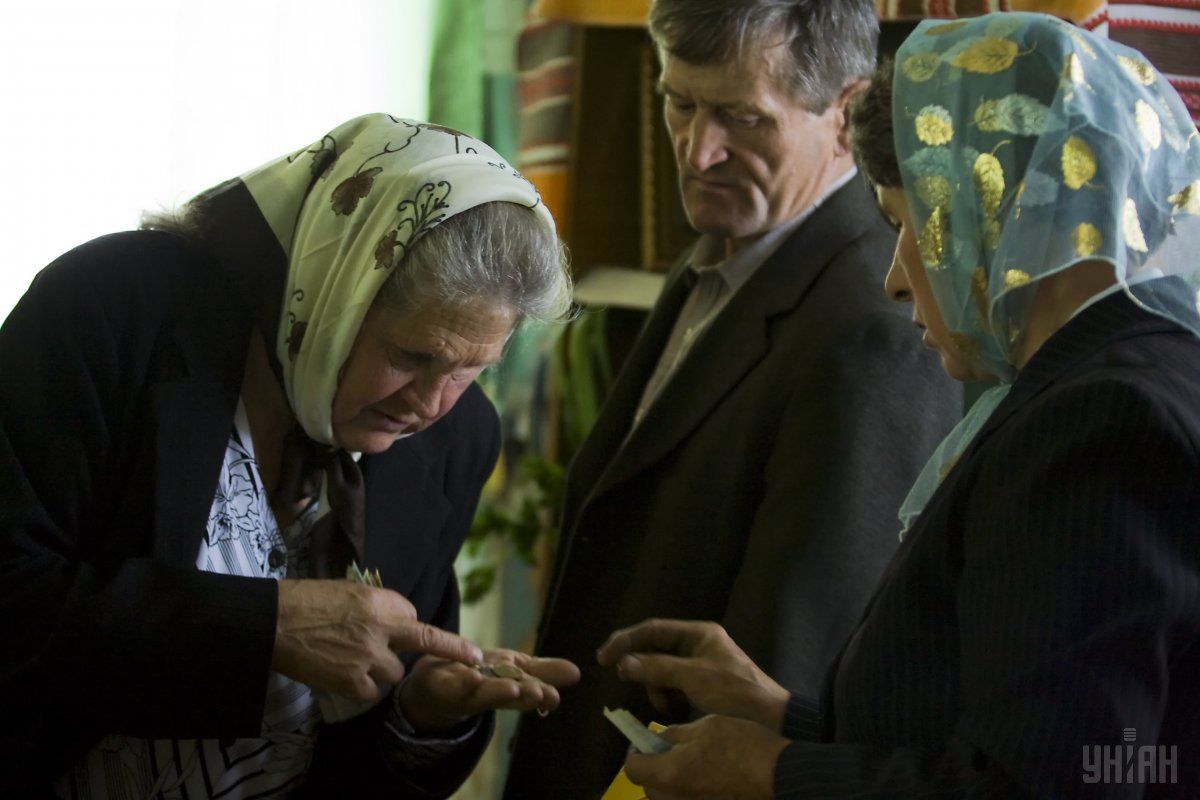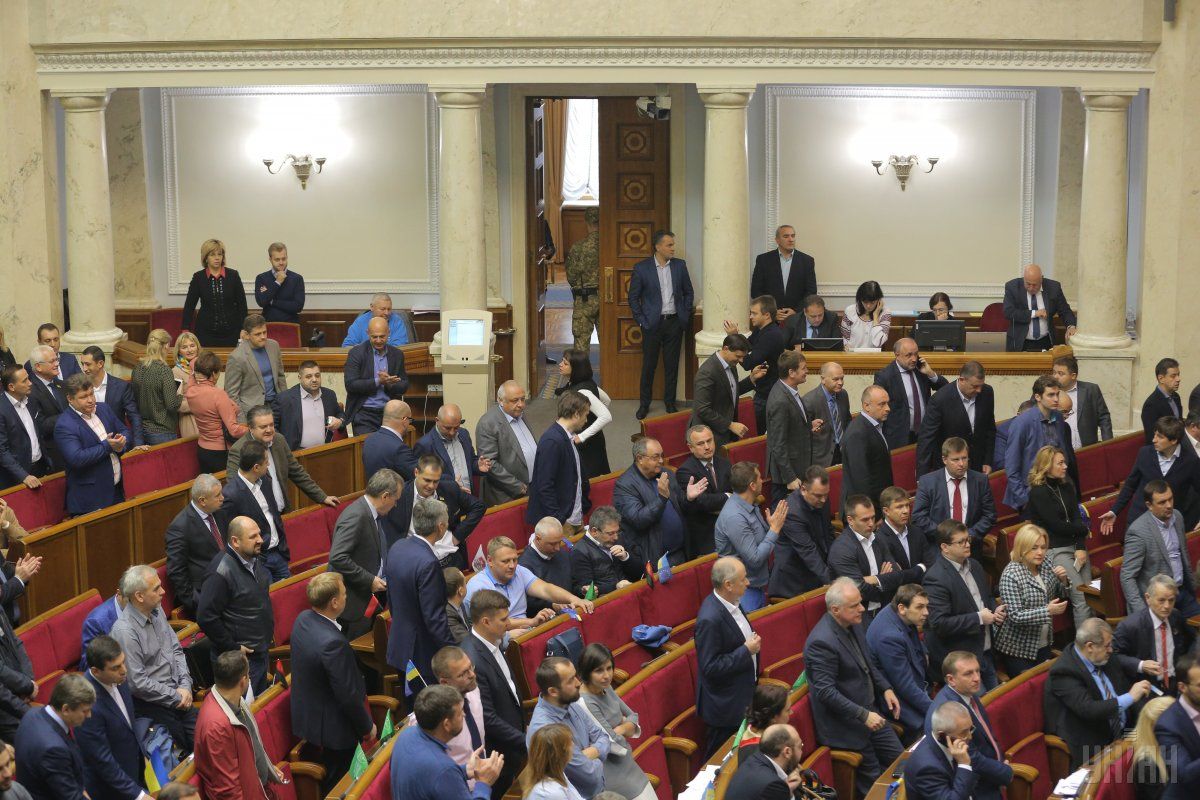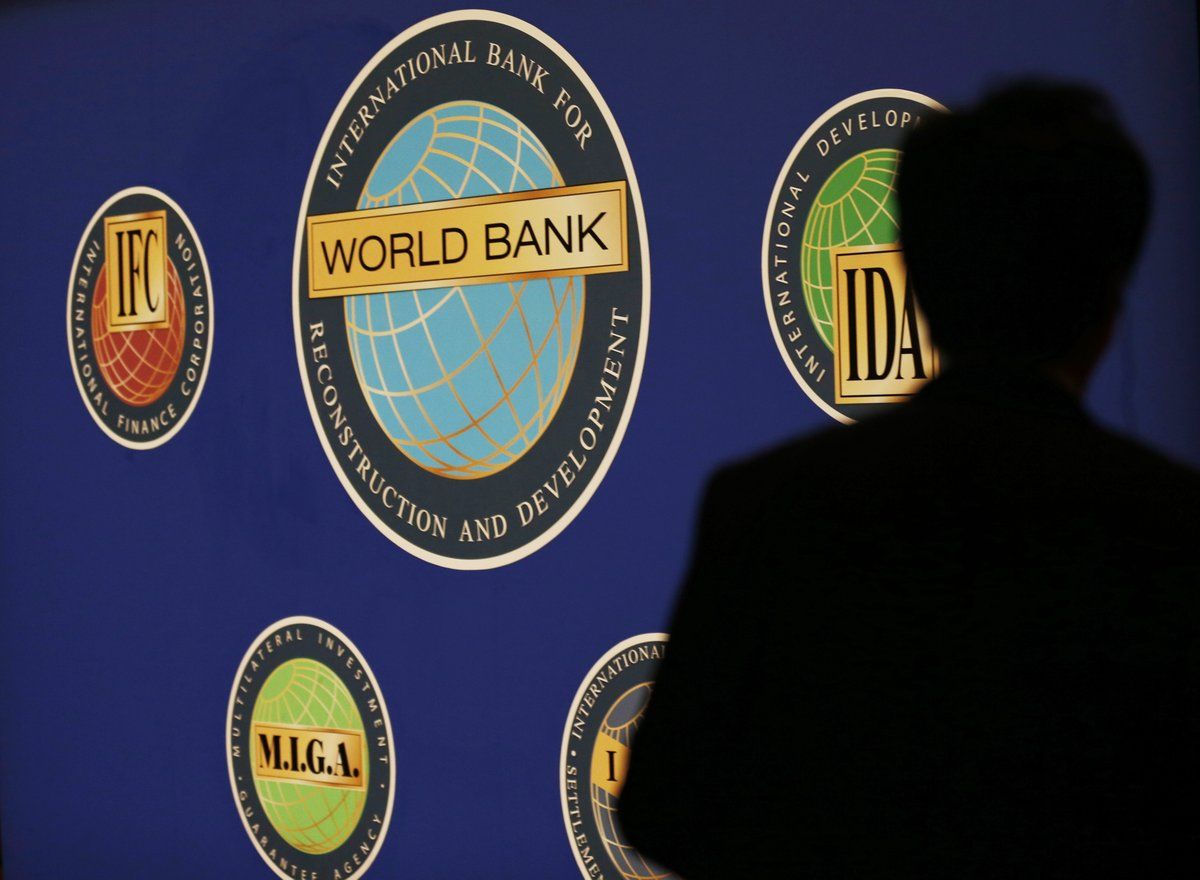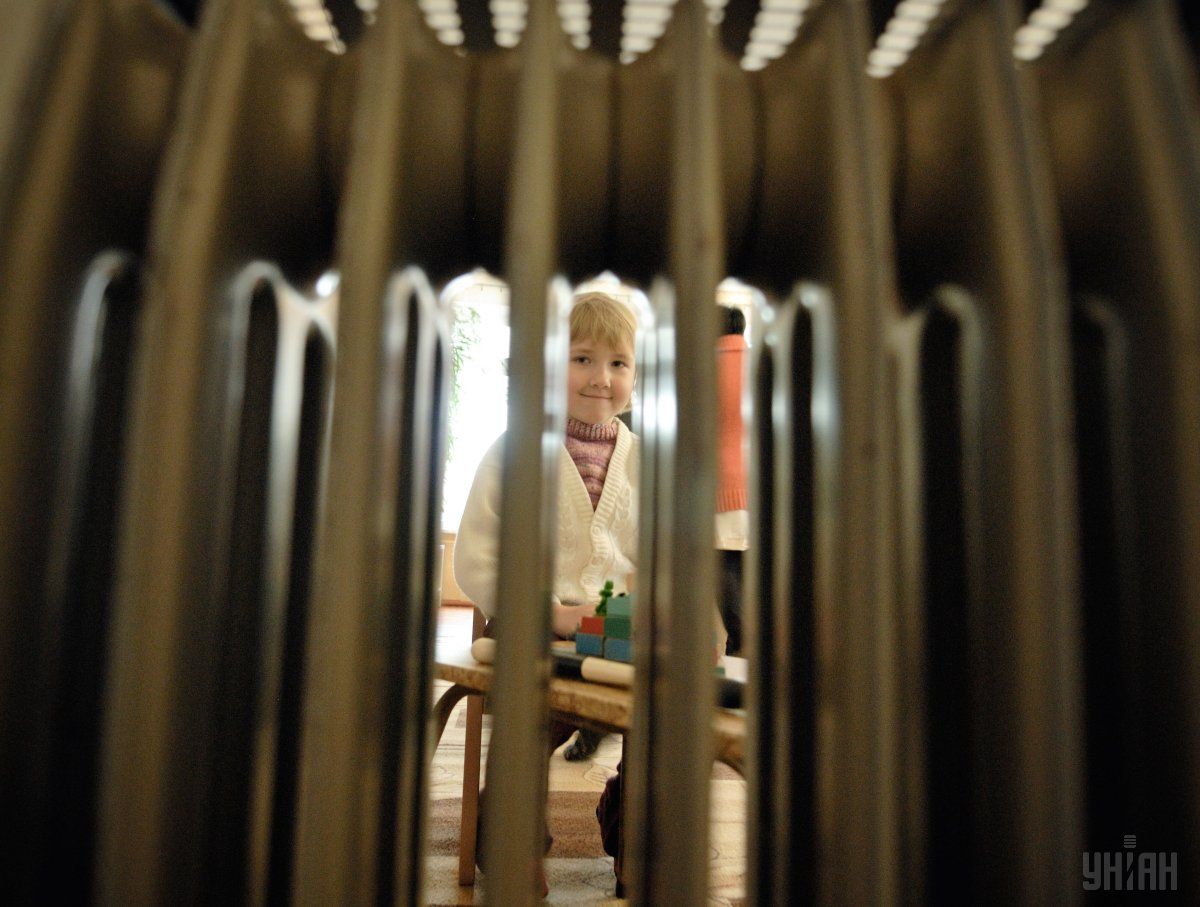
Week’s balance: progress on pension reform, World Bank’s forecast, and reassurances ahead of heating season
The Verkhovna Rada adopted a long-suffering pension reform and continued to perform rather decently, having adopted a number of important laws; the World Bank announced a macroeconomic forecast for Ukraine; while the government reported on the country’s readiness for the heating season - these are the main economic news of the outgoing week.
Undoubtedly, the crucial event of the outgoing week was the adoption by the Verkhovna Rada of the key pension reform.
Prime Minister Volodymyr Groysman as early as May 2017 introduced the initial ideas on the drastic change of the pension legislation. Since then, the debate has been storming in the society, as well as among politicians and experts, over the fundamental principles of pension reform. Many stood against the change but the prime minister insisted that the adoption of pension reform was a responsible historic decision that would help the country establish an actually fair pension system.
Groysman personally attended the session hall on the day of the vote realizing the importance of Rada’s potential decision. After all, it was dictated by a harsh requirement on the part of the country’s key lender, the International Monetary Fund: another assistance tranche will be disbursed only in exchange for reform.
However, the government tried to disavow the fact, claiming that adopting changes to the pension legislation was long overdue anyway. Otherwise, every year an increasing hole in the budget of the Pension Fund (now the deficit is at UAH 140 billion) could at any time lead to disastrous results. Now, the approved pension reform, according to its inspirers, should solve this major problem. Now the Pension Fund should finally come to seeing a surplus. Presumably, an updated formula for calculating pensions should also contribute to this.
The issue of raising the retirement age was one of the most painful for the public. Under the new law, there will be no such raise but the requirement for an insurance period has been introduced. From January 1, 2018, in order to retire at 60, one will need to have gained 25 years of insurance period, whereas previously it was 15 years. If the insurance period is between 15 and 25 years, Ukrainians will be able to retire at 63, and with an experience of under 15 years - at 65.
As we can see, the insurance period has become truly important from now on. Meanwhile, the minister of social policy has already stated that 35 years of insurance period will guarantee a pension of 35% of the salary.
At the same time, people with no insurance period gained will be able to qualify for social assistance at the age of 63. The amount of assistance will be determined based on the level of income of the applicant’s family.
An important point in the reform is the cancellation of special pensions for civil servants, judges, scientists, and some other categories of citizens. In addition, pensions appointed for lengthy service have been abolished, except those for military servicemen and operatives of the country’s law enforcement and security forces.
In addition, the pension reform envisages the introduction from January 1, 2019 of a funded pension insurance system. And for working pensioners the good news was the cancellation of a 15 percent reduction in pensions for the period they are employed.
However, for the changes in the pension system to be put to force, the last step is required, and that is the signature of the Ukrainian president. But Petro Poroshenko has already assured the prime minister that he would ink the bill it in the coming days.
Most likely, after the adoption of the pension reform, the prime minister's rhetoric should change dramatically. Now he will no longer be able to dwell on self-promotion due to road construction projects. Now it’s the number of jobs created and the level of salaries which will be of more importance to the public.
Parliamentary weekdays: scuffles and bills

The outgoing week was surprisingly productive for the country's legislature. Besides approving pension reform, deputies have also passed judiciary reform, while the amendments to the relevant bill have been introduced and discussed over the past three weeks. It’s not yet clear where the latest innovations will bring the judicial system. Expert opinions on the matter varied. Some fear that the president will further strengthen his power over the courts, while others argue that the courts will become less corrupt, which will increase Ukraine's attractiveness to foreign investors. Parliamentarians also made an important step toward the introduction of e-governance. They adopted a law on the identification of citizens by Bank ID and Mobile ID digital signature. The law should promote the creation of conditions for the development and operation of electronic trust services and their free circulation in Ukraine.
Head of the Verkhovna Rada Committee on Informatization and Communications Oleksandr Danchenko stressed that the adoption of the law on electronic trust services would allow Ukraine to join EU’s single digital market.
"The Ministers of the European Union signed an agreement on the creation of a single digital market before 2018. The digital market is about EUR 60 bln of investments in infrastructure and development of digital services. The share of Ukraine in this market may amount to $5 bln-$6 bln," he said.
The Rada has also passed a bill that defines the basic principles of ensuring Ukraine’s cybersecurity. The new legislation is designed to identify the main objects of cyber defense, which together constitute the country’s critical information infrastructure. "We are at war with Russia. One of the components of this war is cyberattacks... Viruses, energy grid switch-offs are a big problem ... It is very important to provide legal basis for our security forces and give them legal powers to protect our country ... The bill prescribes the concept of what a critical infrastructure is..." said Danchenko.
World Bank’s outlook

PM Groysman expressed hope that the Rada would maintain its momentum and pass "motivating" laws this autumn that would double the pace of the economic growth. According to him, following the increase of social standards and pension reform, economic growth will increase the incomes of citizens.
Groysman's words were confirmed by the World Bank, which presented a new macroeconomic outlook for Ukraine. The World Bank believes that the country requires urgent and swift reforms in order to stimulate economic growth.
This is a package of reforms that will allow Ukraine to achieve 4 or more percent of economic growth. Without this reform, Ukraine risks falling into a trap of low growth, that’s according to World Bank Director for Ukraine, Belarus and Moldova Satu Kakhkonen.
According to the official, first of all, it’s about land reform, including the creation of a transparent land market and the abolition of the moratorium on farmland sales from January 1, 2018.
The World Bank also believes that accelerating the implementation of land reform and other reforms aimed at reducing the budget deficit will allow Ukraine as early as next year to borrow in international markets at 5% per annum.
World Bank noted that in order to further reduce fiscal risks, in addition to pension reform, the reforms are required of education and healthcare, while the targeting of housing and communal subsidies must become more precise.
The reform package for accelerating economic growth should also include reform in the financial sector, fighting corruption and privatization, which will stimulate investment growth and economic productivity.
The World Bank published an outlook for the growth of Ukraine’s economy in 2017. They are sure that the GFP will grow by 2%. Although, according to experts, such growth will be insufficient to raise the standards of life of Ukrainians to the pre-crisis level.
Encouraging for Ukraine is the World Bank's forecast for the slow-down in inflation in 2017 to 10%. In the following years, Ukrainians should expect an even greater drop in the pace of inflation. In 2018 inflation is expected to slow to 7%, and in 2020 - to 6%.
However, the state budget deficit will increase this year to 3.5% of GDP from 3% in 2016 as a result of higher wages and social standards, according to the World Bank.
Fully ready, or will snow come as surprise

Judging by temperature outside, the heating season is not far off. At this time, the authorities traditionally start declaring boldly a 100% readiness for the onset of the cold.
The situation in the regions at the moment shows that the energy sector is 100% ready for the heating season everywhere besides Volyn, Sumy, Donetsk, Zaporizhia, Kherson, and Kyiv regions, and the city of Kyiv. That’s as regards the housing stock.
Chernihiv, Poltava, Kharkiv, and Kyiv regions and the city of Kyiv lag behind in terms of the readiness of facilities of social and cultural sectors.
Ivan Plachkov, head of Supervisory Board at Kyivenergo pointed out that, according to the results of the company's inspections, it turned out that only 50% of the housing stock in Kyiv is fully ready technically for the upcoming colds.
According to him, if the situation does not change in the near future, Kyivenergo simply has no right to supply heat.
PM Groysman, on the one hand, stated the country’s 100% readiness for winter, while on the other hand, he lay all the responsibility for the timely launch of central heating services of their quality on local authorities. The prime minister also assigned local authorities on a very special mission - to prepare municipal equipment for the winter snow. "I’m warning you several months ahead - there will be snow. This should not be a surprise to you, again. The equipment must be ready, "Groysman said.
Oleksandr Kunitskiy

